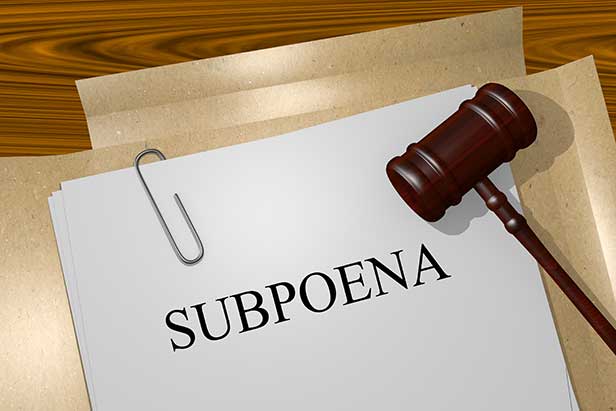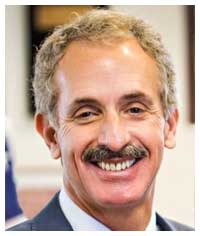News August 10, 2020
LA Apparel Responds to City’s COVID Subpoena
The supplier is turning over records on sick leave policies and the number of employees to Los Angeles authorities following a subpoena and court petition.
Los Angeles Apparel (asi/67971) plans this week to provide information regarding its sick leave policies and number of employees to the City of Los Angeles – a new development related to a reported outbreak of COVID-19 at the apparel supplier/manufacturer’s South Los Angeles facilities that killed four workers and infected approximately 375 employees.

The decision was announced after the Los Angeles City Attorney’s Office filed a petition in court on Aug. 6 that asked a judge to enforce a subpoena for such information from Mayor Eric Garcetti’s office.
 The subpoena was originally served on July 17. L.A. City Attorney Mike Feuer (pictured) said Los Angeles Apparel didn’t provide the requested documents and information by the return date of July 31, prompting the filing of the petition.
The subpoena was originally served on July 17. L.A. City Attorney Mike Feuer (pictured) said Los Angeles Apparel didn’t provide the requested documents and information by the return date of July 31, prompting the filing of the petition.
“COVID-19 has raged throughout Los Angeles, but has hit low-income workers particularly hard,” Feuer said. “Our office is determined to ensure L.A. Apparel has adhered to our public health and safety laws. If it has not, it needs to be held accountable.”
Speaking to the Los Angeles Daily News, Los Angeles Apparel founder Dov Charney maintained that the company has done everything it could to protect workers and inform them of positive COVID-19 diagnosis among employee ranks. He further noted that workers accrue time off and receive paid time off as law mandates.
“We’ve complied with all of the law to a tee,” Charney told the Los Angeles Daily News. A company statement later added: “The company has followed the Mayor’s order for Supplemental Paid Sick Leave and all Sick Pay rules that apply in the City of Los Angeles. … We intend to cooperate fully with any routine and reasonable information requests from the City Attorney or any inquiring agency. We emphasize that at no time has the City accused Los Angeles Apparel of non-compliance.”
Back in July, Los Angeles Apparel released a statement that detailed steps it says it has taken to respond to COVID-19 and protect workers:
Public health authorities had ordered Los Angeles Apparel shut in June following the reported coronavirus outbreak among staffers. Authorities allowed Los Angeles Apparel to resume operations in late July, saying the company had complied with workplace safety mandates.
Charney founded Los Angeles Apparel in 2016. He’s best known as the founder of American Apparel (asi/35297), a brand that’s now owned by Top 40 supplier Gildan and with which Charney has no affiliation.
There’s been no indication from authorities that products Los Angeles Apparel has produced could have transmitted COVID-19 to buyers/end-users.
While not speaking about Los Angeles Apparel specifically, the Centers for Disease Control and Prevention has said of transmission through physical products, in general: “There is still a lot that is unknown about COVID-19 and how it spreads. Coronaviruses are thought to be spread most often by respiratory droplets. Although the virus can survive for a short period on some surfaces, it is unlikely to be spread from domestic or international mail, products or packaging. However, it may be possible that people can get COVID-19 by touching a surface or object that has the virus on it and then touching their own mouth, nose, or possibly their eyes, but this is not thought to be the main way the virus spreads.”
